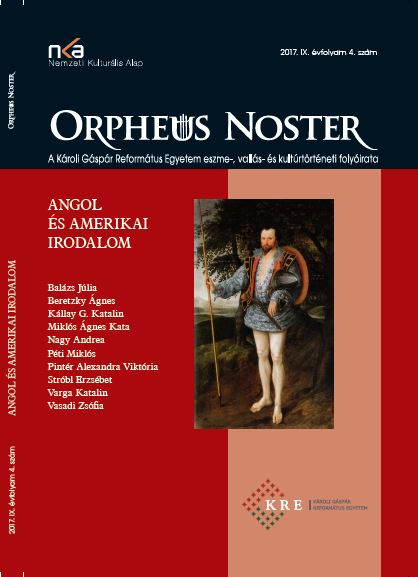
Rough South, Rural South: Region and Class in Recent Southern Literature
Cash, W. Jean, és Perry, Keith, Rough South, Rural South: Region and Class in Recent Southern Literature. Mississippi, University Press of Mississippi, 2017, 264 p.
More...We kindly inform you that, as long as the subject affiliation of our 300.000+ articles is in progress, you might get unsufficient or no results on your third level or second level search. In this case, please broaden your search criteria.

Cash, W. Jean, és Perry, Keith, Rough South, Rural South: Region and Class in Recent Southern Literature. Mississippi, University Press of Mississippi, 2017, 264 p.
More...
History is an important part of human being’s life in that it plays an important role in shaping our private, public, and political viewpoints. It serves as a mirror to life because it connects past events with present ones and may at times affect the future as well. Likewise, history enables us to ponder about the reason behind some past events and their influence on the individuals’ present lives. The wide range of history and its broad coverage of different causes and effects of life events are the two focal issues that open the readers’ eyes to the inherent features of the New Historicists’ examinations of various works of literature. With this critical standpoint in mind, the present paper intends to study Edward Albee’s play The Sandbox to reveal the existing factors that link the play with the previous historical events present in the American history of the time. By choosing New Historicism as the main model, the paper will shed light on such issues as power, resistance, and subversion put forward by such leading figures of this critical approach as Michel Foucault and Stephen Greenblatt.
More...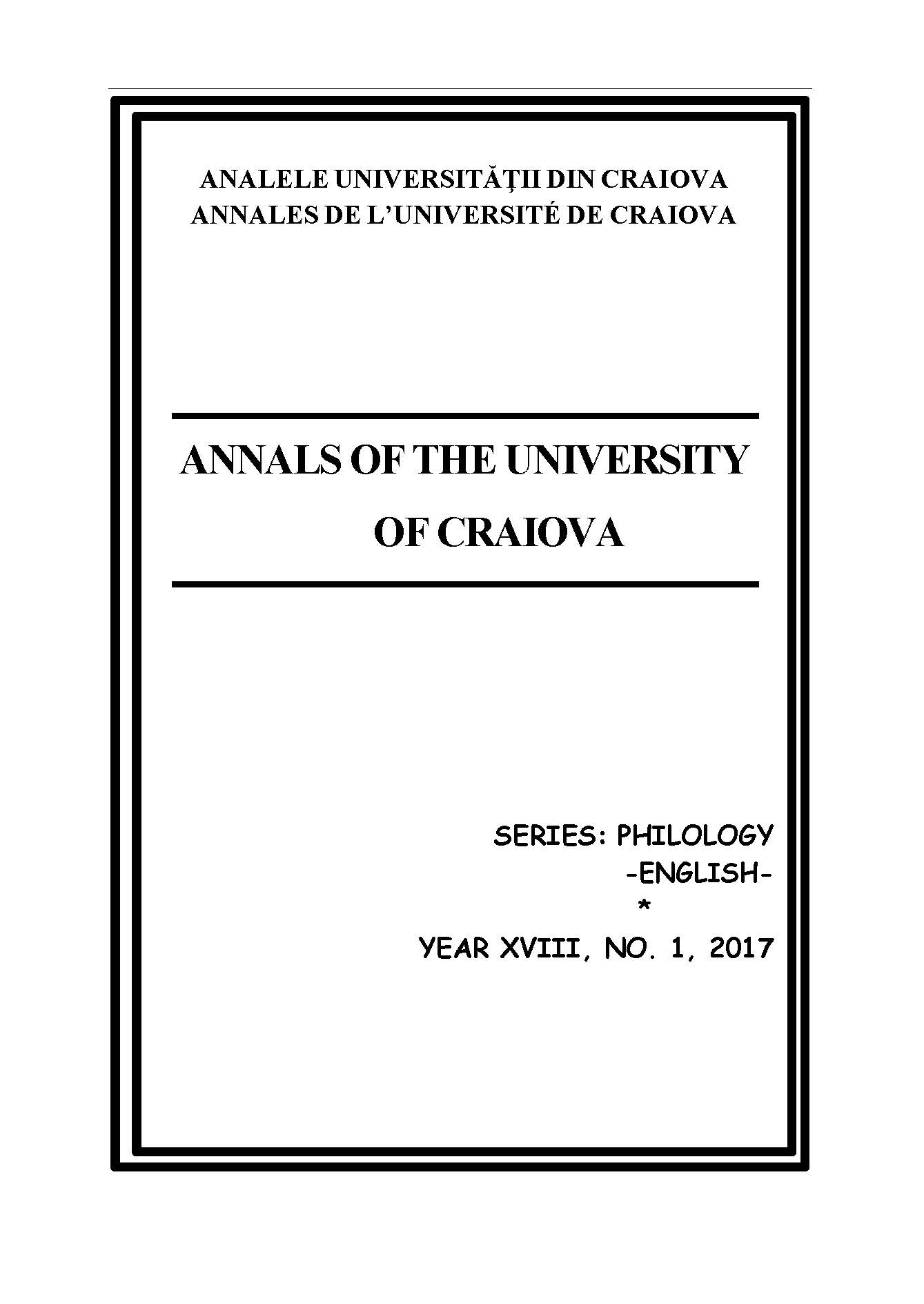
Tar Baby has always been considered different from other Toni Morrison’s novels even though her thematic preoccupations remain similar. Strong visions of detachment,physical and psychological exile, and a certain state of cultural conflict are experienced throughout the novel. The result of these adverse conditions is that characters remain disconnected from identity and place, from culture and traditions and are held separate by dreams and dream visions from community and memory, even from their own past. This paper aims to investigate how conflict is reflected in these fixed and complex images of lack,expressing the difficulty and impossibility of preserving continuity and collective consciousness within an increasingly fragmented culture.
More...
Generally branded a post-apocalyptic work, Cormac McCarthy’s The Road represents more than this, transcending its label by the complexity of the themes it touches upon. From images of relics to words echoing other famous authors, McCarthy’s writings always hint at the crucial importance of the past. His last novel is no exception,and the present article will focus on the recurrence and significance of this concept, by analysing the constant opposition between the bleak present and the fading past, shaped directly through symbols, as well as through the Man’s dreams, his words and the lessons he chooses to teach his Son.
More...
In Fitzgerald's short story "The Curious Case of Benjamin Button" the normal cycle of birth, death and the degenerative process of aging, growing young respectively are reversed, therefore creating an abnormal time frame. The personal past of the individual becomes his present and vice versa. In the present study I will focus my attention on the analysis of the psychological and physical chronology of the main character, pointing out the importance of normality. Time becomes a character in itself, generating a completely different life situation.
More...
As a student, there were three things I was very passionate about: history, hip-hop,and theatre. I originally went to university as a history major – I discovered the theatre there and ended up double majoring in history and theatre – and the first music Iever heard that I felt spoke directly to me was hip-hop.
More...
The article discusses Henry David Thoreau’s domestic spatial imagery in Walden, in terms of Bachelard’s poetics of space, as a set of angles, nests, crusts, and shells. The analysis identifies uncanny similarities between Thoreau’s imagery and descriptions of megamachines, as defined by Lewis Mumford. The descriptions of megamachines come from a variety of more recent sources from the 20th century, which suggests that the seemingly unrelated, technocratic texts have been inspired by Thoreau.
More...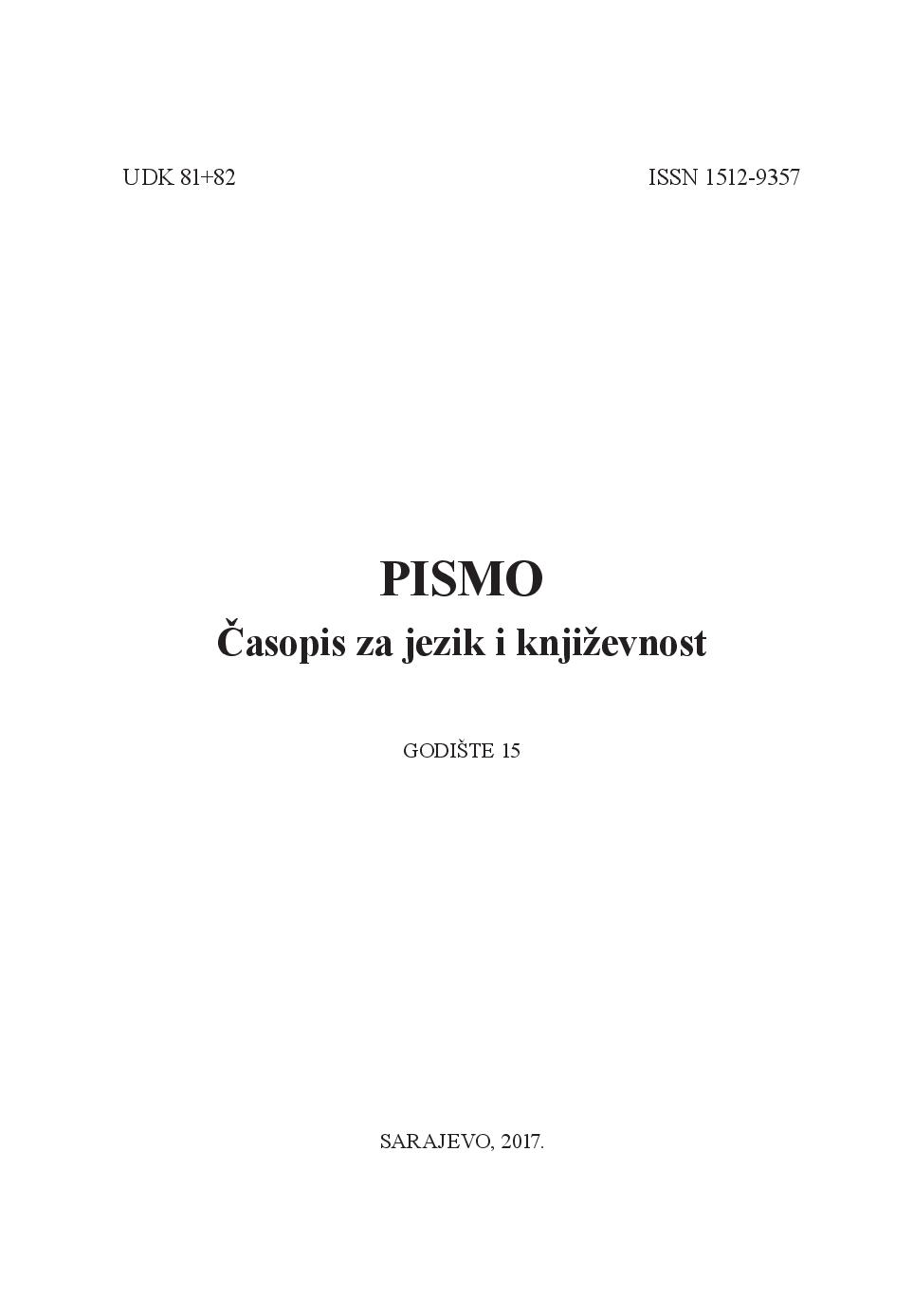
This article analyzes ways in which the construction of identity is tied to the nexus of space and memory in Marilynne Robinson’s novel Home (2008). The interbraiding of spatiality and diverse historical-cultural paradigms in this awarded novel is depicted through images of places important, even crucial, for recollecting past events, the inscription of memories into space and identity formation. The core motif used by the novelist as a strategy for presenting the interaction of space and memory with immediate impact on identity construction is evident in the title of the novel, affirming its significance: home is both a locus of cultural memory and a complex space inscribed with personal, collective and social memories that permeate stories about family, friends and the wider community. Apart from the protagonists’ house, the novel is characterized by another important element for the spatialization of memory and a particular sense of belonging or exclusion: landscape. Dominant as physical surroundings, it is significant for repressing inner contradictions between the main character and her hometown that shape her sense of place, her memories of events related to the place and thus determine the import of her past experiences. Informed by cultural geography, spatial theory and memory studies, as well as feminist conceptualizations of spatiality, this paper also examines the constructs and matrices of social relations in identity construction exemplified by this novel.
More...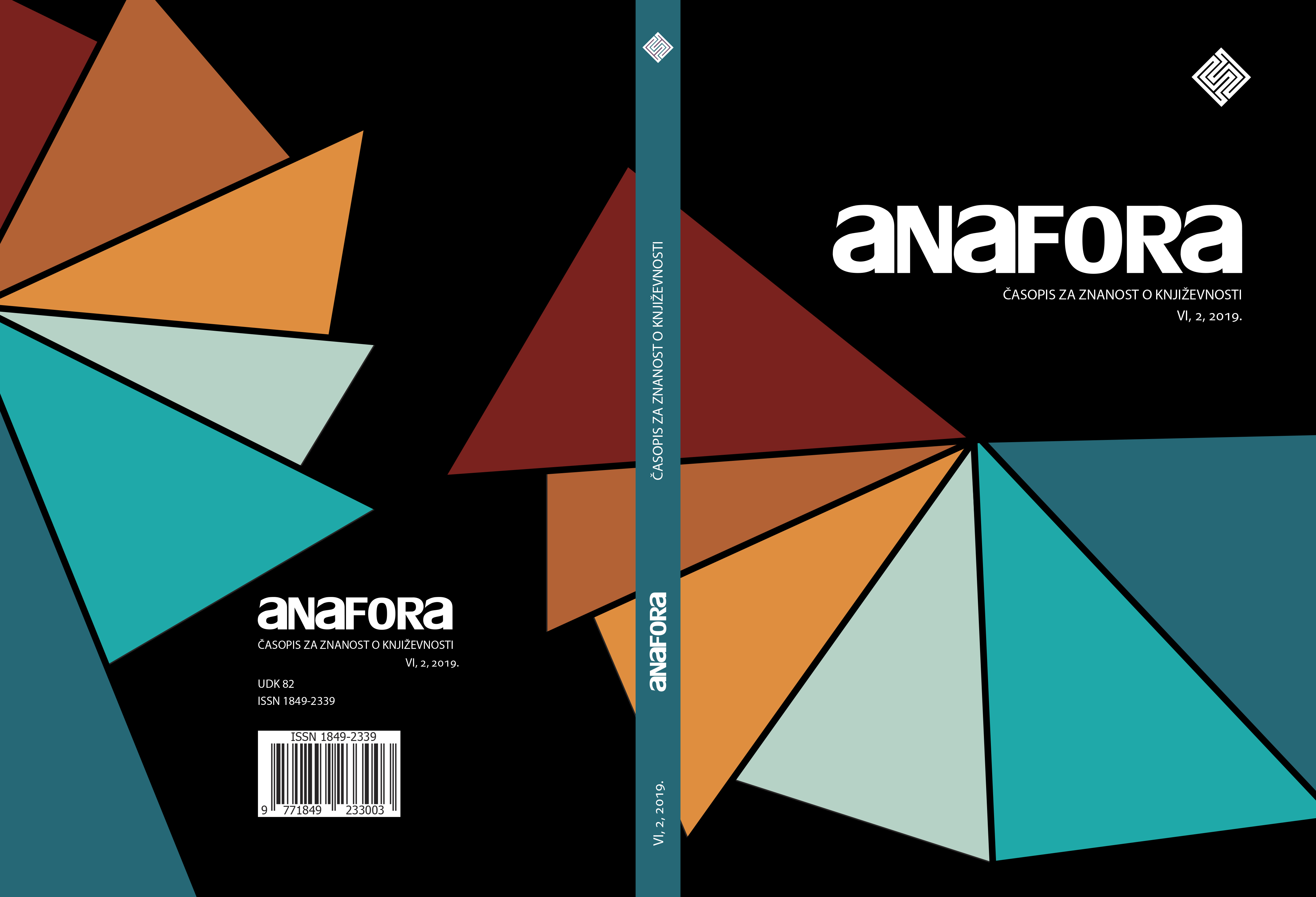
This paper discusses the ways Raymond Carver depicts death in one of his most well-known short stories “A Small, Good Thing.” It deals with Carver’s minimalism as a literary device used to portray the communication (or lack of it) between the characters. The paper may be divided into three parts, showing the different stages of dealing with the protagonist Scotty’s death that his parents go through. The first part addresses denial, grief, and different ways in which people react to the death of a loved one. The second part elaborates on miscommunication as a leitmotif in Carver’s stories and shows the complete breakage of communication between the characters; namely between Scotty’s parents and the doctor, the baker, and the nurses, to name a few. The final part delves into the act of eating as a small, good gesture of kindness that brings people together and calms them down when a person dies. The end asserts that we constantly attempt to understand one another and, unfortunately, often fail to do so because of the unreliable and multi-faceted nature of language.
More...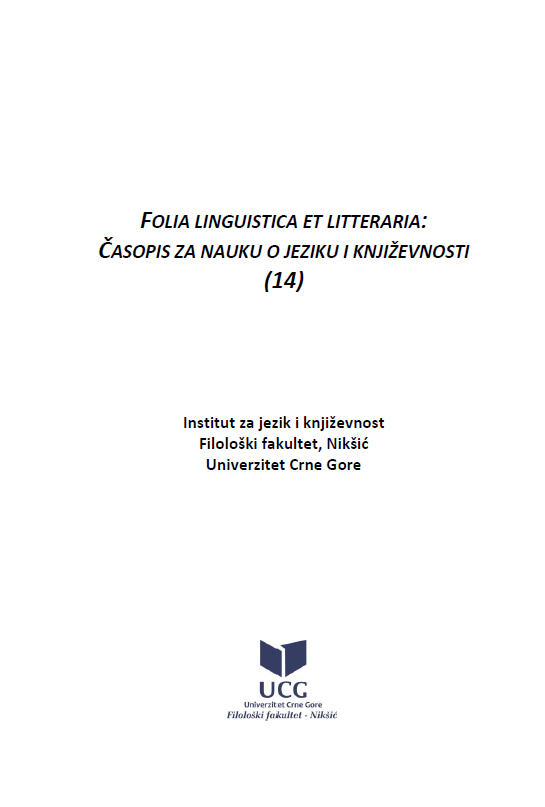
Interview with Don Rearden by Neil Diamond and Marija Krivokapić
More...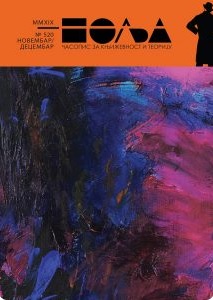
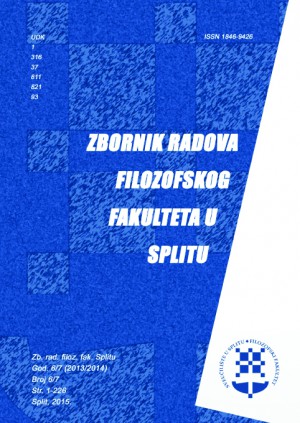
This work analyzes the complex manner in which Toni Morrison addresses the issue of history in her novels, with a specific emphasis on her novels Jazz and Paradise. Black writing in the United States depicts experience that is specifically African American. In other words, black literature records the historical and cultural circumstances that no other group shares. Toni Morrison frequently fuses aspects of the traditional omniscient narrator with the unreliable element of more limited narrators. By merging these aspects, Morrison presents the difficulties for African Americans both in telling the story of their past and in releasing themselves from it. Moreover, Morrison creates a fiction out of a fragment of recorded history. In so doing, she has at the same time created a myth, in the sense that it is not just a piece of fiction that attempts to bear witness to historical events, but also a story that embodies a particular historical contradiction, i.e. the necessity to remember the past, while being aware of the dangers of becoming locked in it.
More...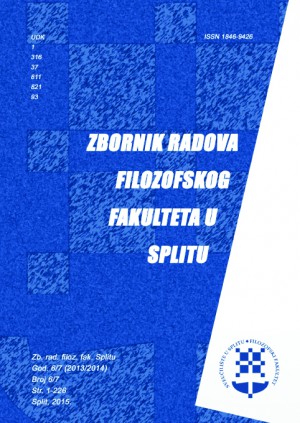
This work analyzes the concept of love among African American female friends. Their ‘friendly’ love, i.e. the strong emotional connection of female characters in both novels by Toni Morrison, was depicted as a necessary means in overcoming the racism and sexism that African American women were exposed to. Such friendships became a means of self-realization and emancipation for African American women who were subjected to repression both by white and black men.
More...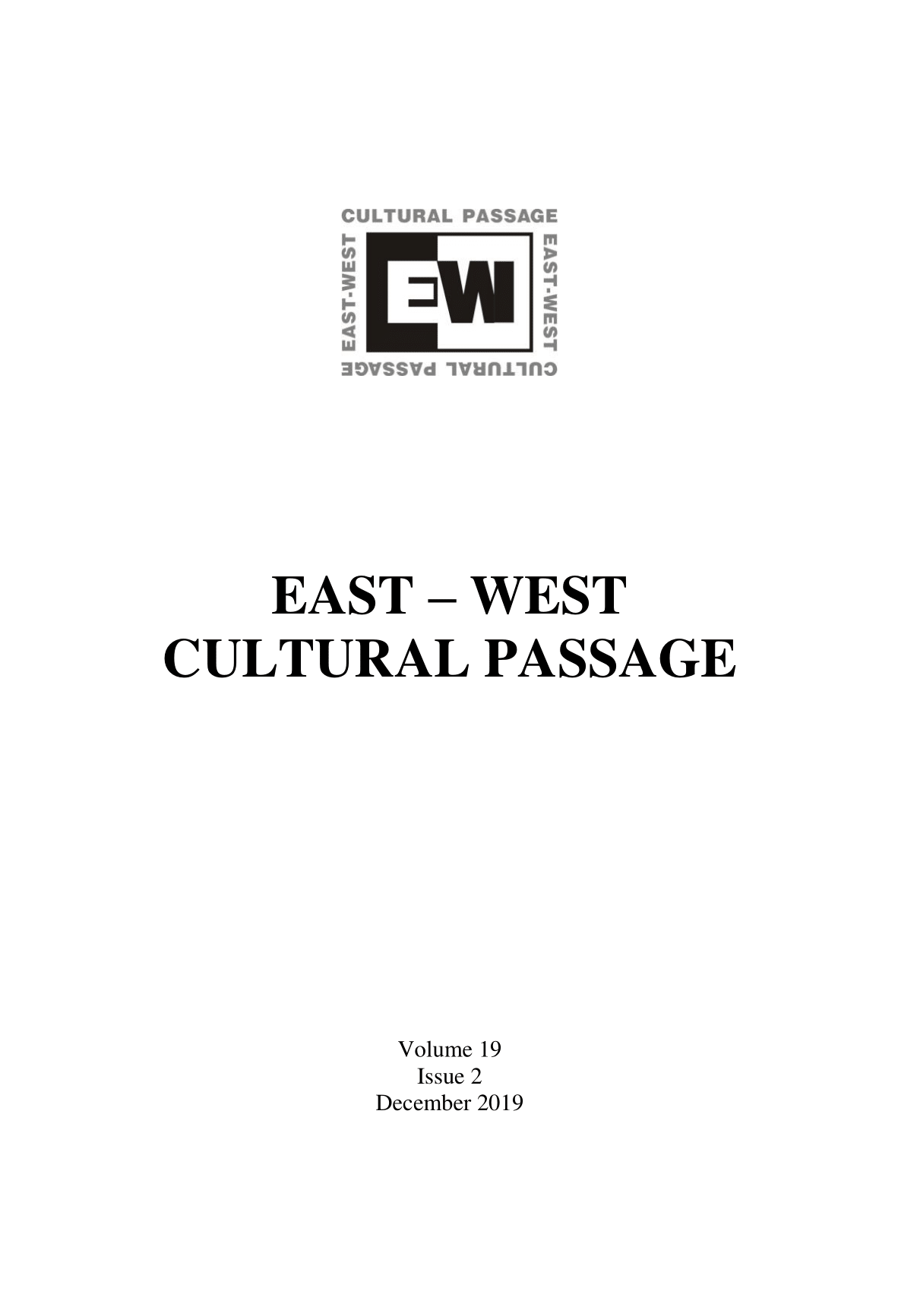
This essay turns to LaDuke’s literature and activism to explore ways in which contemporary Native American writers center their work around issues of food sovereignty, environmental protection, and economic self-determination as essential platforms for community regeneration, renewal, and survival. I argue that Last Standing Woman (1997), Anishinaabe writer Winona LaDuke’s first novel, dramatizes many of these concerns at the heart of her activist and political work. Central to the novel Last Standing Woman is the significance of wild rice for the White Earth Anishinaabe (Ojibwe) people of Minnesota. In Last Standing Woman, wild rice is not only a traditional and sustainable crop but also one that can ensure the livelihood of the community. At the heart of a feminist and activist novel like Last Standing Woman – as well as Winona LaDuke’s activist work, more broadly – is a twofold challenge, which resonates across much Native American writing: on the one hand, the challenge to preserve (existing resources, cultural practices, etc.); on the other, to recover the losses Native communities have suffered historically through colonization and its many consequences, such as the enormous loss of land suffered by the White Earth community. The turn to literature provides Winona LaDuke with a powerful site of political engagement, where she foregrounds issues of gender, tribal politics, and the environment at the same time as she tells a powerful story about Anishinaabe continued resilience.
More...
The Jordanian-American novelist Laila Halaby is perceived as one of the most well-known contemporary Arab-American writers whose hyphenated identity raises questions regarding which side of the hyphen she belongs to. In this respect, one way to determine whether Halaby identifies herself as an Arab or an American is to examine how she perceives and explores Arab and American cultures and to investigate the different images she constructs about Arabs and Americans. In West of the Jordan (2003), throughout the tales of the four female cousins, this American writer of Arab descent explores the Arab communal values and conventions, as well as the Western beliefs and ways of life. Most importantly, Halaby depicts different images of Arabs and non-Arabs in the context of social, political, and economic conflicts and relationships. In this article, the focus will be mainly on the images of non-Arabs in West of the Jordan. My study, accordingly, draws on Edward Said’s Orientalism and its counterpart Occidentalism, which offer theories of communal and identity construction, as well as practices that lead to stereotyping discourses about the other. This article will consequently start with a definition of the term Orientalism and its counterpart Occidentalism, moving on to deal with the different images of non-Arabs in the second part. Indeed, this latter section investigates how Halaby, who belongs to the Western and Eastern worlds, produces knowledge of the Western society and culture, by offering interesting representations of the two worlds. The third part will shed some light on Halaby’s attitude toward the American world and toward the Arab-American relationships.
More...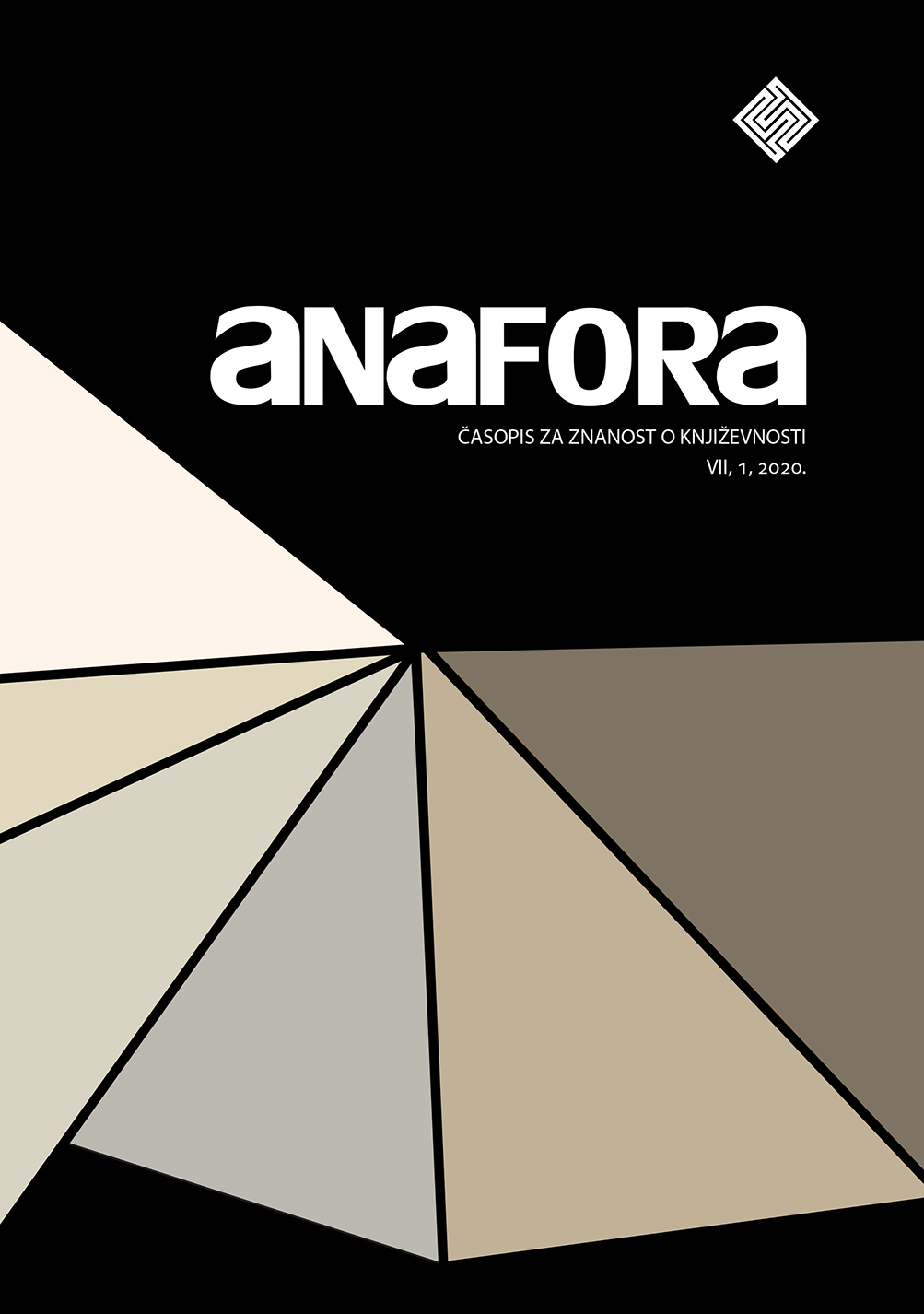
As the bedrocks of the French imperialism in North America, the fur trade and the logging industry led to a drastic depletion in the populations of fur-bearing animals, particularly that of the beaver, and massive deforestation on the continent. Examining Annie Proulx’s Barkskins from an ecocritical point of view, this article seeks to investigate the novel’s representations of the detrimental impact of anthropocentrism. We will show that the prevalence of anthropocentrism in New France resulted in the over-harvesting of beavers to procure precious pelts for European markets, where fur clothes were in vogue during the seventeenth and eighteenth centuries. In this scenario, French merchants went from rags to riches at the cost of losing myriads of beavers. On the other hand, our study will also address the indirect endorsement of biocentrism by the indigenous North Americans, who refrained from inflicting irreparable damage on nature in a vast territory in which the European settlers relentlessly cut ancient trees to make their fortunes. Hence, the focus of this article is the distinction between the perspectives on the natural world held by French settlers and Native Americans in Barkskins.
More...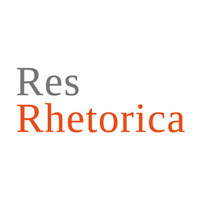
The concept of black boyhood has always been marked with negative associations. American media usually portray black boys as a potential threat. Rather than focusing on their future, they treat black boyhood as an experience “in the now,” failing to consider the historical context of African American communities. Thus, they create a monolithic picture of young black men, which highlights only their faults. This way of imagining black boyhood has inspired African American authors and illustrators to talk back and join the national debate. Their picture books reject the public rhetoric of crisis and replace it with a new black narrative, which reconstructs the black male identity. The aim of this article is to analyze selected images of black boyhood included in the books, as well as to compare them with the message of today’s media.
More...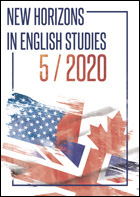
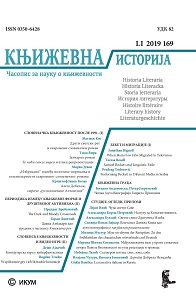
The paper is an analytical depiction of the poetic and political debates that took place in the American literature of the indicated period, primarily in small presses and little magazines. After the introductory review of the specifics of the American artistic and ideological radicalism, as well as three general remarks (on the used sources, the non-homogeneous nature of the Left, and its gradual culturalization), we distinguish three periods in the history and activities of the left-wing literary intellectuals in the United States and offer an interpretation of the paradigmatic events within each of them. The conclusion deals with the reasons why these activities were unsuccessful and self-destructive.
More...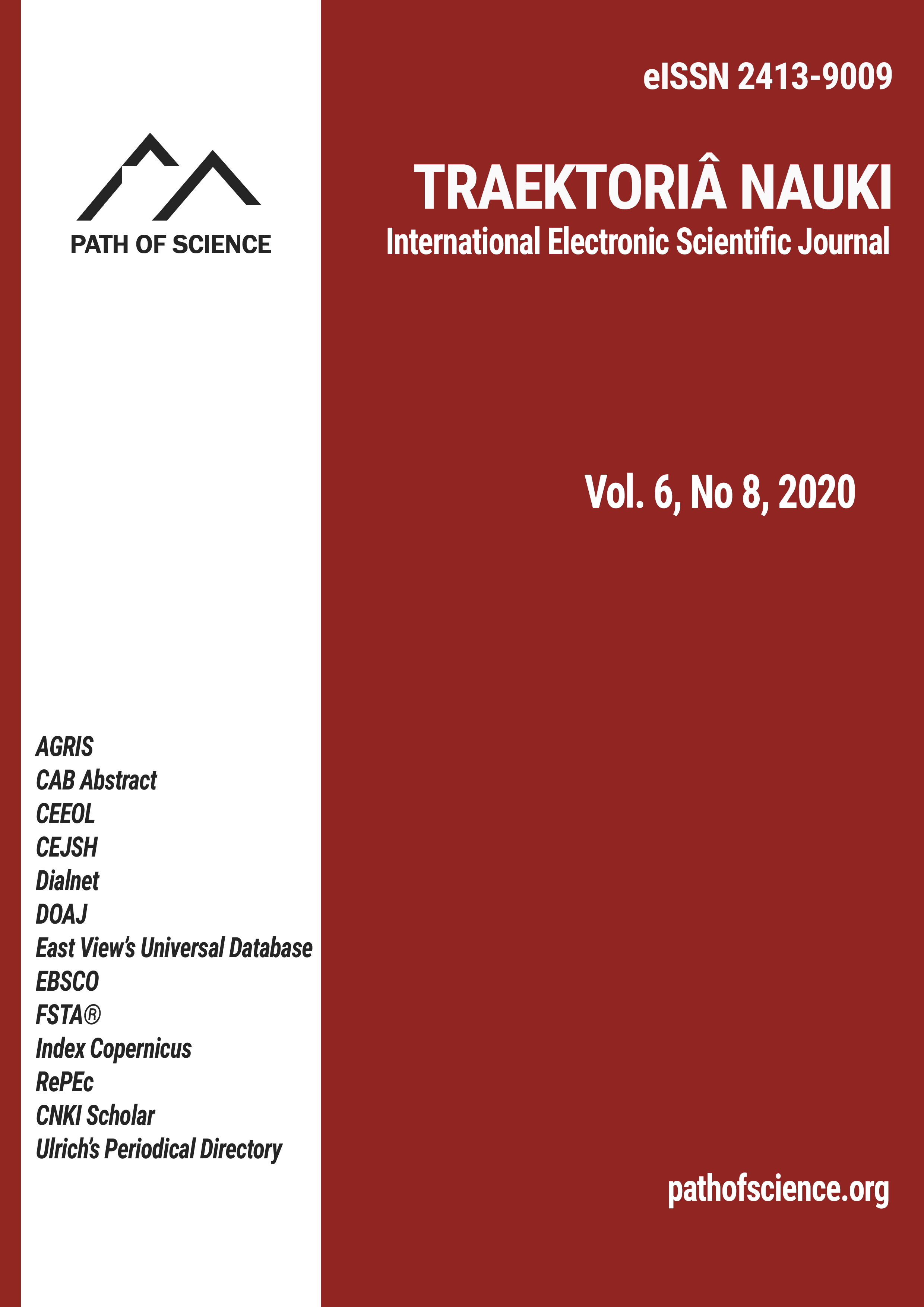
The article is devoted to the analysis of the problem of presence of Darwinism ideas in E. Wharton's novel “Twilight Sleep”. The relevance of the study is due to insufficient research of the influence of Darwin’s ideas on the development of the world literary process of the late nineteenth - early twentieth century in modern literary criticism. Therefore, the objective of the research is to interpret E. Wharton’s novel “Twilight Sleep” from the standpoint of Darwinism. To achieve this goal, it is advisable to solve the following tasks: 1) to analyze the effect of natural selection on the lives of characters in the novel “Twilight Sleep”; 2) to consider the behavior of the characters in the context of sexual selection; 3) to study the influence of Darwinism on E. Wharton. It is proved that natural selection underlies the social processes depicted in the novel at the beginning of the twentieth century, which marked the decline of the ancient tribal nobility and the emergence of the social life of nouveau riche capitalists. Excessively conservative New York aristocrats cannot adapt to life in the postwar world, and therefore lose the struggle for existence to the nouveau riche, whose active social position allows them to quickly and effectively adapt to any external conditions. The principles of sexual selection are manifested in the rivalry of heroes of one sex for possession of heroes of the opposite sex in order to create a family and have children. According to Darwinism, when choosing a partner, women in the novel “Twilight Sleep” pay attention to a man’s financial position, his capabilities and social status, and men - to a woman’s appearance, intelligence and social status. The heroines who successfully undergo natural and sexual selection, manage to start a family and have children (Lita Wyant, Pauline Manford). As Nona Manford does not undergo natural and sexual selection, she remains single and childless. It is established that the influence of Darwinist ideas can be traced to the peculiarities of E. Wharton’s idiostyle. Following Charles Darwin’s scientific style, who provides numerous illustrations from the life of nature to confirm his theory, the writer compares her characters with representatives of flora and fauna, which contributes to their semi-animalistic image.
More...